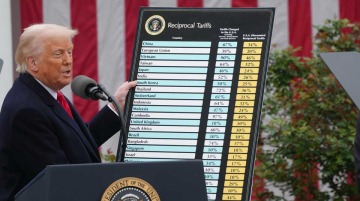
By Alvaro Mendez and Chris Alden
After eleven months and five rounds of negotiations, Ecuador announced last month that it has completed a Free Trade Agreement (FTA) with China. It still has to obtain legislative approval, but we believe it will go through without incident. While this may look like a speedy negotiation, it is actually the standard speed for China’s FTAs, particularly with global South countries eager to reach an agreement. In this sense, Beijing has the upper hand in negotiating for its own benefit, especially if the agreement happens too fast without the necessary involvement of experts or civil society. According to many Ecuadorian stakeholders, the negotiations took place behind closed doors with minimal public scrutiny or consultations.
China is already Ecuador’s largest trading partner, so policymakers in Quito perceive the FTA as more than good news. For them, it is a “historic milestone” that will help Ecuador diversify its exports and gain more access to one of the world’s biggest markets. They also believe the agreement will enable them to reduce their dependency on Washington, which some political and business elites view as unreliable and uninterested.
Ecuador’s president, Guillermo Lasso, is thrilled with what is happening. He sees FTAs as the “ideal vehicles” for collaboration abroad in order to internationalize his country’s economy. Unsurprisingly, members of his cabinet have expressed a wish to negotiate up to 12 FTAs by 2025, coinciding with the end of Lasso’s first term in office. Ecuador has a two-term limit on presidents, and Lasso has already announced his bid for re-election.
Getting that many FTAs done is a very ambitious plan considering that some of the countries Lasso wants to conclude FTAs will require more substantial negotiations than Beijing. Experts estimate that the average time to negotiate a bilateral FTA is approximately two years. His bucket list includes FTAs with the U.S., Canada, and South Korea.
Whether or not Lasso manages to get re-elected or negotiate all these ambitious FTAs remains to be seen. What is clear is that more FTAs will enhance his post-Presidential life in one way or the other. Steering a free trade agreement through to completion is considered a triumph for policymakers in Latin America and the Caribbean (LAC). However, managing one with China is deemed far more impressive by all. Currently, China has FTAs with Chile, Peru, and Costa Rica. Each of the three existing FTAs was signed by the same President who opened the door for negotiations.
This trend suggests that LAC foreign policymakers are happy to engage and open doors as long as they think that it will yield self-interested benefits like prestige. Even Oscar Arias, the former President of Costa Rica, acknowledged that negotiating an FTA with China between 2009 and 2010 was one of the high points of his career, a peculiar and thought-provoking statement coming from a man who had already won the Nobel Peace Prize in 1987.
Alvaro Mendez is the director of the Global South Unit at LSE. He is also an Associate Fellow at the Geneva Centre for Security Policy (GCSP) and a Foreign Expert and Adjunct Professor at Fudan University in Shanghai.
Chris Alden is a professor of international relations at LSE and Director of LSE IDEAS. He is also a Research Associate with South African Institute of International Affairs (SAIIA). They are the authors of China and Latin America: Development, Agency and Geopolitics, published by Bloomsbury in January 2023.









